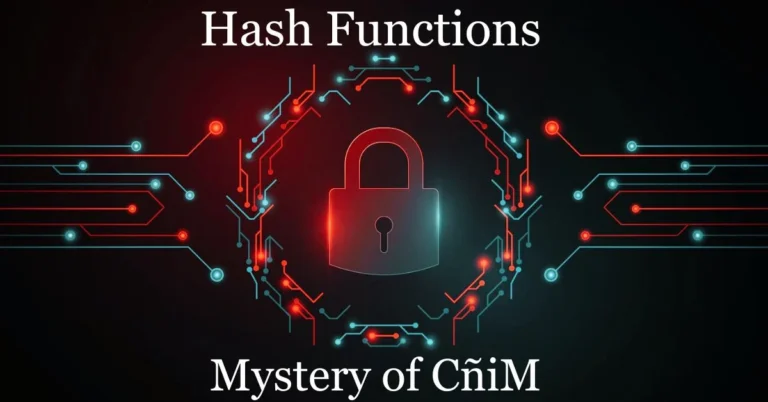Staying Ahead of the Game: 3 Key Scams to Avoid on Online Gaming Platforms
Gaming is one of the fastest-growing industries worldwide, with millions of players, young and old, across consoles, mobile devices, and PCs.
And where there are millions of people, there are millions of dollars worth of money being spent. By 2029, experts predict the game industry will be worth over $666.69 billion. It should come as no surprise that cybercriminals are turning their efforts into this worldwide industry, targeting not only gamers but developers, too.
So, what exactly is at risk from hackers? How do these online scams work, and how do you avoid them?
This article will highlight the range of scams you must be vigilant about. You’ll learn simple ways to bolster your game account’s protection and avoid common scams in gaming today.
There are three common online scams in the gaming industry
Whether you’re an avid gamer playing the latest online game or a budding developer about to create the next big title on a platform, there are three main scam types to be aware of when it comes to gaming. These include:
1. Phishing attacks
Phishing is when a fraudster impersonates a legitimate company or person to earn your trust and eventually trick you into doing something that compromises your cybersecurity.
As one of the most common cyberattacks, phishing is becoming a significant threat to gamers and developers, as scammers message you on gaming platforms through emails, social media posts, and in-game messages.
At first, phishing attacks will appear genuine and may contain personal information, like your account name, real name, or email address, all of which seem trustworthy. They might pretend to be customer support, a fellow developer, or a player looking to make friends. But at some point, they will ask you to visit a website, share some information with them, or download a file they are sending you.
Gamers and developers must be vigilant about who they talk to online on gaming platforms. Never share passwords or personal information with unknown people, no matter who they claim to be.
Trade and item scams are also a growing problem with phishing attacks. This is when scammers rob in-game items from your account to sell on platforms. In 2022, one CS:GO player was conned out of $2 million worth of skins in one such attack, showcasing the enormous value your game account (and its contents) can have.
2. Online shopping scams
Scammers are also targeting platforms to deceive gamers out of money. Standard features of online shopping scams include:
- Fake advertisements: These ads often contain premium games, consoles, or developer software at low prices. They may impersonate recognizable platforms like Steam, all to steal your genuine login information when you visit the website and attempt to log in.
- Unrealistically good offers: Scammers often offer fantastic deals in their posts to entice gamers into clicking on them. These include free codes and skins, add-ons, games, or getting access to exclusive servers. Be wary of clicking on unverified or unfamiliar website links.
- 3rd party vendors: Some platforms will offer you discounted rates on subscriptions, such as PlayStation Plus or Xbox Game Pass. These sites are often unapproved and will take your money without providing you with a valid code.
3. Malware infections
Finally, malware is another common problem for gamers and developers to be vigilant about, as scams are often designed to infect your device.
In gaming, malware can easily be downloaded via cracked games and software, installing fan-made add-ons and mods, and clicking on suspicious websites.
Malware can not only steal your login information, but it also has the potential to corrupt your devices beyond repair. In 2023, GitHub researchers found dangerous malware embedded in popular Minecraft modpacks distributed on popular third-party websites. The malware in question, “fracturizer,” was labelled incredibly dangerous, with infected PCs being described as “completely compromised” as a result.
Three ways to protect yourself from online scams
Below are three ways of ensuring you don’t lose the game against hackers before you even have a chance to log on:
1. Reinforce your passwords and enable authentication
Passwords are central to staying safe online, especially in gaming. The stronger they are, the better protected your account is from theft.
Creating a strong password for your gaming accounts is relatively straightforward. Aim to use at least 12 to 14 characters and a mixture of symbols, numbers, and upper- and lower-case letters. Gamers should never repeat account passwords and avoid using personal information like nicknames and birthdates.
To add another layer of protection to your game accounts, you should also activate multi-factor authentication (MFA). This will prompt you to verify your identity when logging in, usually through an authenticator app or a single-use code. Because the scammer cannot verify their identity, they cannot access your account.
2. Prevent malicious advertisements from appearing
So many phishing and malware attacks stem from malicious advertisements people click on. Especially with online games, ads can appear incredibly convincing using game assets, fonts, and taglines that appear genuine.
For total peace of mind, you should aim to stop them from appearing in the first place. One highly effective way of doing this is using a VPN with an ad blocker, which has built-in threat protection that prevents advertisements from loading on your screen.
A VPN also hides your IP address from hackers and advertisers who try to gather information about you. If you’re wondering what information an IP address can disclose about you, try out an IP address lookup tool to check your own IP address.
3. Check website addresses and sender information carefully
With phishing attacks, scammers often create almost identical-looking websites and accounts to impersonate a trustworthy service. Gamers and developers can protect themselves from these elaborate schemes by checking and verifying the source before clicking.
Fraudulent websites and email addresses often have slight spelling mistakes or use a number instead of a letter to dupe you. Game developers should be cautious when clicking on URLs received through networking sites like LinkedIn. More and more scammers are impersonating recruiters or fellow professionals to deceive you into compromising your account by downloading attachments.
They may also request that you send them on your resume, which may be used to scrape your personal information. A general rule of thumb is that if a message is from someone you aren’t familiar with, it’s best to ignore them.
Some final tips
Protecting yourself from online scams in the gaming industry is vital to ensuring that your data and money are safe. By being vigilant and aware of the different types of scams that exist, gamers and developers can take steps to protect themselves. Remember, if something seems too good to be true, it probably is. Stay safe and enjoy your gaming experience!







